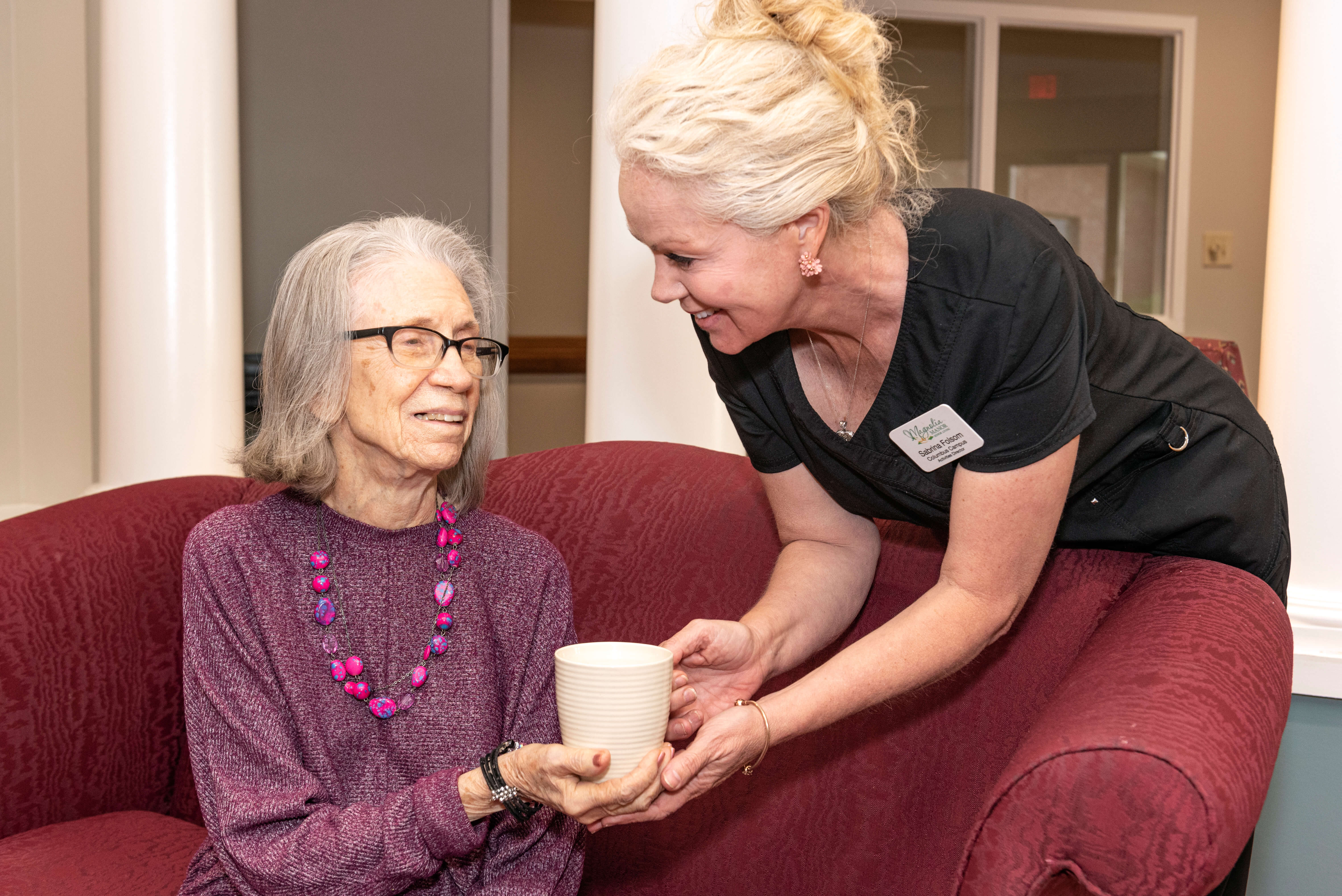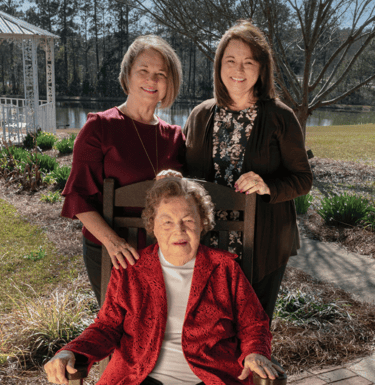Download our Free Guide:
Senior Living Explained
Learn what different types of senior living care are available and which one best fits your needs now and in the future.



November is Alzheimer’s Awareness Month. Everyone knows something about this insidious disease, but November’s official designation invites us to learn more and consider ways we can all show support for those dealing with dementia. While this is an “awareness month,” for families and friends of the nearly 7 million American seniors living with Alzheimer’s, awareness is an everyday, often distressing, experience.
.jpg?width=375&height=563&name=Macon%202024%20Fall%20Festival%20(5451).jpg) One easy way to show your support is to wear teal-colored clothing throughout November. Color psychology studies reveal that teal is a particularly calming color, a fact the Alzheimer’s Foundation of America says is “helpful when designing and decorating spaces and events to be welcoming and comforting to those living with Alzheimer’s.”
One easy way to show your support is to wear teal-colored clothing throughout November. Color psychology studies reveal that teal is a particularly calming color, a fact the Alzheimer’s Foundation of America says is “helpful when designing and decorating spaces and events to be welcoming and comforting to those living with Alzheimer’s.”
This leads us to the subject of this blog – ways caregivers and others can cope with (and help) a loved one with dementia.
The Current Situation
The Alzheimer’s Association reports that, as of this year, there are about 6.9 million Americans age 65 or older with Alzheimer’s. That’s 1 in 9 seniors. About three-quarters are over the age of 75. Minorities feature prominently in these statistics:
The VA offers a range of healthcare services for elderly veterans, including:
It is important to remember that there are several types of dementia, although Alzheimer’s is by far the best-known. Despite somewhat different symptoms and other details, all types of dementia are incurable and progressively damaging.
 Tips for Caring and Coping
Tips for Caring and Coping
Watching a loved one gradually forget important people, milestones, and little details of their past is so difficult for family members and friends. It is even more upsetting to know you are the one losing the memories, thinking, and motor skills that make each of us unique. Alzheimer’s can feel relentless, and the stress can feel overwhelming.
There are many things you can do to ease caregiving and improve the quality of life for your senior. Above all, be calm, listen to their concerns, and try not to show impatience, even when you’re both feeling frustrated.
 Here are a few suggestions to ease everyday living:
Here are a few suggestions to ease everyday living:
 Alzheimer’s and other types of dementia are complex. As they progress, people respond differently – often in negative ways that make caregiving even more challenging. However, there is a multitude of resources available to caregivers and families. Those include Alzheimer’s and other dementia-focused research and support organizations as well as two valuable government entities:
Alzheimer’s and other types of dementia are complex. As they progress, people respond differently – often in negative ways that make caregiving even more challenging. However, there is a multitude of resources available to caregivers and families. Those include Alzheimer’s and other dementia-focused research and support organizations as well as two valuable government entities:

Caregiver.org offers an extensive online guide to understanding and managing common dementia-related behaviors, including:
 When It’s Time to Let Professionals Take Over
When It’s Time to Let Professionals Take Over
If you’re a caregiver, you need to take care of yourself, too. Otherwise, you will become too fatigued mentally, physically, and emotionally to be at your best for your loved one. And, as hard as it is to admit, it takes more than love to care for someone who is slowly succumbing to Alzheimer’s or another form of dementia.
Moving to a quality memory care community that prioritizes loving, family-like care as well as the highest medical standards can be the safest and most beneficial solution for everyone concerned.
At Magnolia Manor, we understand. We interact with our memory care residents and their families every day. We’re here to answer questions and to help when it’s time to let professionals take over so you can focus on spending personal time with your loved one. Contact us today for more information or schedule your free tour today!
Learn what different types of senior living care are available and which one best fits your needs now and in the future.
